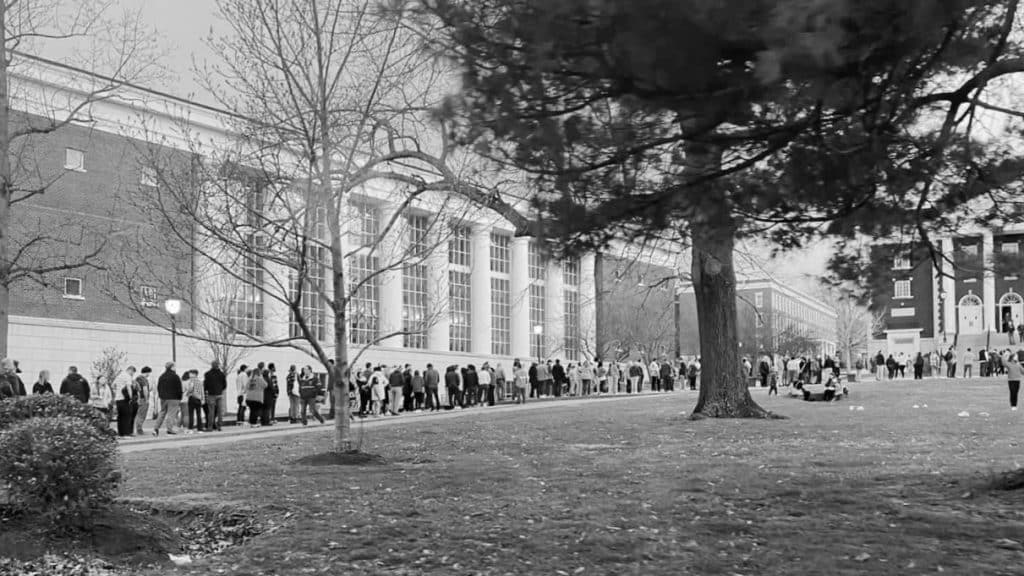This fall looks quite a bit different at Asbury University. The slogan “mask mode” references the required masks across campus and personal bubbles of six feet. Food options from the cafeteria have expanded while the Bistro has disappeared for the foreseeable future. Chapel, one of Asbury’s oldest traditions, is not exempt from changes either.
While most changes being implemented are only for the duration of COVID-19 restrictions, the Cross Cultural Experience (CCE) requirement is implementing a permanent change this year.
Shannon Montgomery, the Coordinator for Cross Cultural Engagement, answers important questions regarding what the new Cross-Cultural Experience looks like.
What are the changes that have been made to the CCE requirements?
Changes to the CCE requirements apply to new students only. Returning students will continue under the previous CCE guidelines, which are the completion of the CCE073 Cultural Immersion Experience and follow-up assignments. This experience may be fulfilled through semester/summer-long study abroad programs, travel courses, mission or volunteer trips, athletic-sponsored service trips, or personal international explorations. Stateside experiences may be approved on a case-by-case basis.
Beginning in Fall 2020, all new traditional undergraduate students will be required to complete a new course, CCE150 Cultural Engagement and Responsibility (1.0 credit hours), as well as the current cultural immersion, CCE150EX Cultural Immersion Experience (which will now count for 0.5 credit hours). Students are expected to complete the CCE150EX Cultural Immersion Experience within 12 months of completion of the CCE150 course.
New students with more than 60 transferred credits at the time of matriculation (not counting AP and college credits earned prior to high school graduation) may be considered to waive CCE150EX, the immersion experience, as has been the case with previous students. However, new transfer students are still required to take CCE150, Cross-Cultural Engagement & Responsibility.
New international students or those who have lived extensively outside of the U.S. and Canada may not have to travel to complete their CCE150EX requirement, but they must satisfy the CCE150EX paperwork and academic requirements. They must also complete the CCE150 course and are encouraged to enroll within their first year at AU.
Under the new CCE guidelines, travel experiences prior to Asbury enrollment will not be eligible for fulfillment of CCE150EX for new students.
Who created these updates/changes?
The new CCE150 course was designed with the intent of assisting students with understanding their own cultural identity as well as equipping them for cultural encounters in our global society. Students will also be given a clearer understanding and regular structure for preparation of their CCE150EX Cultural Immersion Experience. As part of its reaccreditation process, the University selected cultural responsibility for its QEP (Quality Enhancement Plan) to reflect its intentionality and commitment to cultural awareness among our students. The CCE enhancements were approved by the Faculty Assembly in Fall 2019 as an addition to the TUG Foundations.
How long will these be in place (or is this a permanent change)?
This is a permanent change for all incoming new students beginning Fall 2020. The former CCE073 structure will be phased out as our returning students complete their Asbury degree.
Can you define the types of experiences that qualify for CCE?
Asbury’s Cultural Immersion Experience is an immersion into another culture, engaging the student in a variety of life-spheres (family, education, religion, art, media, economics, and government). Most experiences will expose the student to cultural dynamics outside of the United States. The experience must be of sufficient length and intensity to have an adequate impact upon the worldview of the participant.
The Cultural Immersion Experience (both CCE073 and CCE150EX) may be fulfilled through semester/summer-long study abroad programs, travel courses, mission or volunteer trips through local churches or mission agencies, athletic-sponsored service trips, or personal international explorations. Stateside experiences may be approved on a case-by-case basis. All travel experiences must be preapproved by the CCE office prior to travel.
Are the steps to be involved in a CCE the same (i.e. proposal application forms, post-assignment assessments)?
For returning students, the steps for completion of the CCE is the same: complete a CCE Orientation session, submit the Proposal and pre-trip assessment, participate in the travel experience, then follow through with the completion of the assignments and post-trip assessment. New students will need to complete the CCE150 course, and then within 12 months, submit a Proposal and complete the travel experience, assignments, and assessment.
How are graduating seniors who haven’t completed their CCE requirement able to do so considering the current COVID travel restrictions?
All returning juniors and seniors (graduating by August 2022) have been notified of a CCE Alternate Plan that provides four options for them to complete their CCE requirement with no travel, as well as options with minimal social contact for those who are immuno-compromised. These students still need to complete the CCE Orientation session and follow-up assignments. Many returning juniors and seniors have already completed the travel component of their CCE requirement and only need to follow thru with the assignments.
What is going to happen to the CCE trips that were cancelled last semester?
Regrettably, over 250 students were affected by cancelled trips during the spring and summer breaks. Many of those trips will hopefully be rescheduled in the upcoming months, but that will depend on the current pandemic status. Until then, students (graduating by August 2022) will be able to take advantage of the CCE Alternate Plan options, if necessary. Students are encouraged to continue to plan for travel experiences, but for those graduating soon, that may not be an option.









